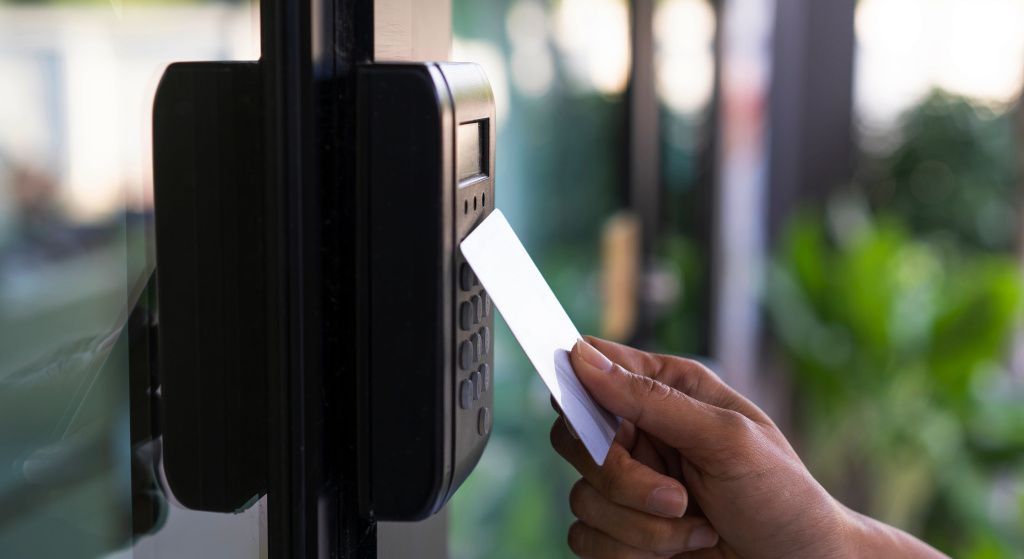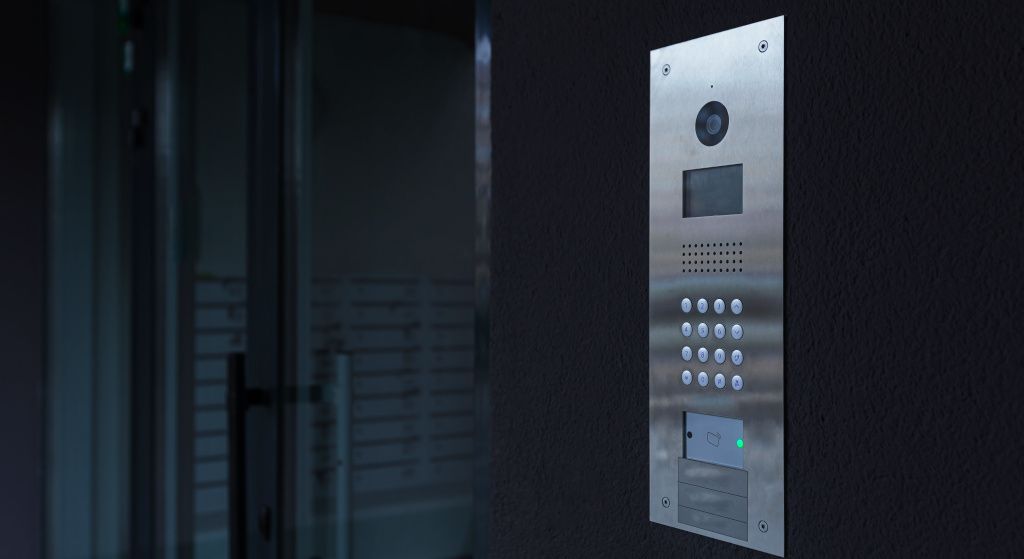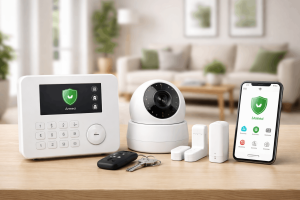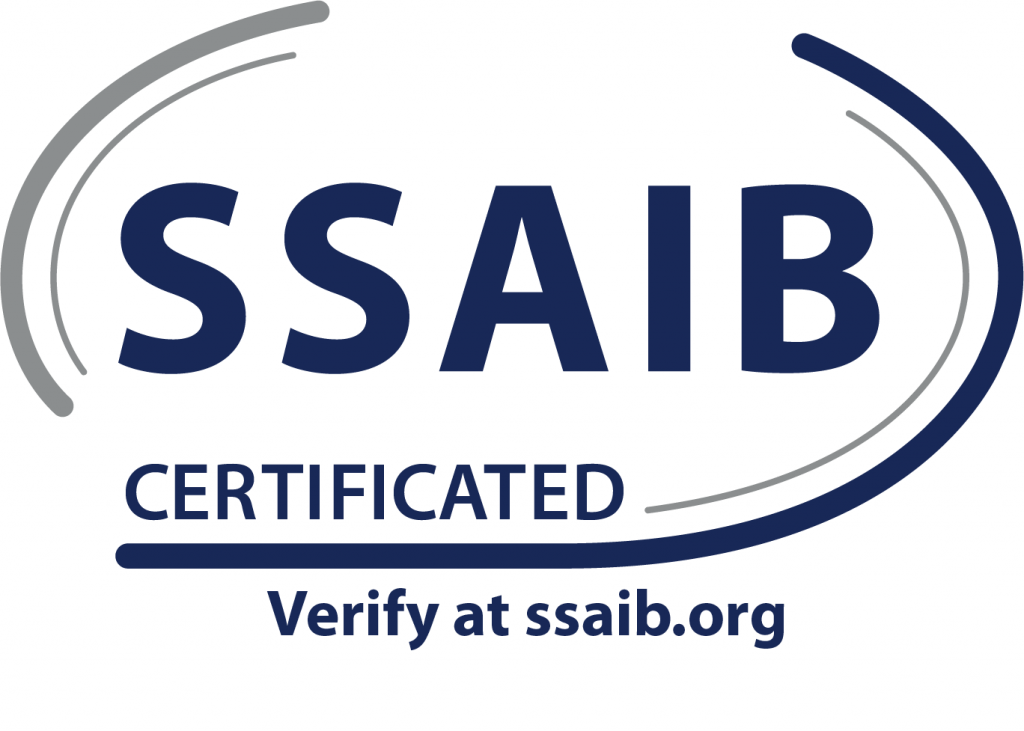Access control is a fundamental concept in modern security systems that regulates who can enter or exit a particular space. It’s an integral part of maintaining security, confidentiality, and efficiency across various domains, from residential homes to corporate offices and beyond.
In this blog post, we’ll delve into the world of access control, answering frequently asked questions and sharing some intriguing facts.
FAQs about Access Control:

Question #1
What is access control?
Access control is a security mechanism that grants or denies entry to authorised personnel while restricting access to unauthorised individuals. It employs a combination of technologies, policies, and procedures to ensure that only those with proper credentials can access a specific area.
Question #2
How does access control work?
Access control systems use a variety of methods, including keycards, PINs, biometrics (such as fingerprints or retinal scans), and even mobile apps. These systems communicate with electronic locks, granting access when the provided credentials match the authorised list.
Question #3
What are the benefits of access control?
Access control offers several advantages, including heightened security by preventing unauthorised entry, improved accountability through detailed access logs, increased operational efficiency by automating access management, and enhanced safety during emergencies by enabling quick lockdowns.
Question #4
Where is access control used?
Access control systems find applications in a range of settings, from residences and offices to hospitals, educational institutions, government facilities, data centers, and industrial complexes.
Question #5
What's the difference between physical and logical access control?
Physical access control pertains to restricting entry to physical spaces, while logical access control focuses on regulating digital resources like computer networks and sensitive data. They often work in tandem to ensure comprehensive security.
Fascinating Facts about Access Control:

Fact #1
Ancient Origins
Access control dates back to ancient civilisations, where guards and sentries controlled entry to fortified cities and castles. The concept of granting permission based on authentication has deep historical roots.
Fact #2
Biometric Marvels
Biometric access control systems, which use unique physical traits for identification, are becoming increasingly popular. Did you know that your retina has about 240 unique features, while a fingerprint can have over 40?
Fact #3
Quantum Leap
Quantum technology is making its way into the world of access control. Quantum key distribution systems offer ultra-secure encryption methods that could revolutionise data protection in the future.
Fact #4
Smartphone Access
Modern access control has embraced smartphones. Mobile apps can serve as virtual keys, allowing users to unlock doors and gates with a simple tap on their phone screens.
Fact #5
Behavioral Biometrics
Cutting-edge access control systems are exploring behavioral biometrics, analysing unique patterns in how people interact with devices, which can include typing speed and touchscreen gestures.
Conclusion:
In conclusion, access control is a crucial element in safeguarding both physical spaces and digital resources. By understanding its mechanisms, benefits, and potential, we empower ourselves to create secure environments tailored to our needs.
As technology continues to evolve, access control will remain at the forefront of ensuring safety and efficiency in an ever-changing world.
If you’re considering implementing access control solutions, reach out for expert guidance and recommendations that align with your requirements.
Access Control Installation
To explore our comprehensive array of Access Control solutions, contact Forrest Security Systems at 01622 320330 or email info@forrest-security.co.uk.
We offer a wide selection of access control systems, including burglar alarms, motion detectors, and tailored security solutions, ideal for safeguarding your residence or business.








